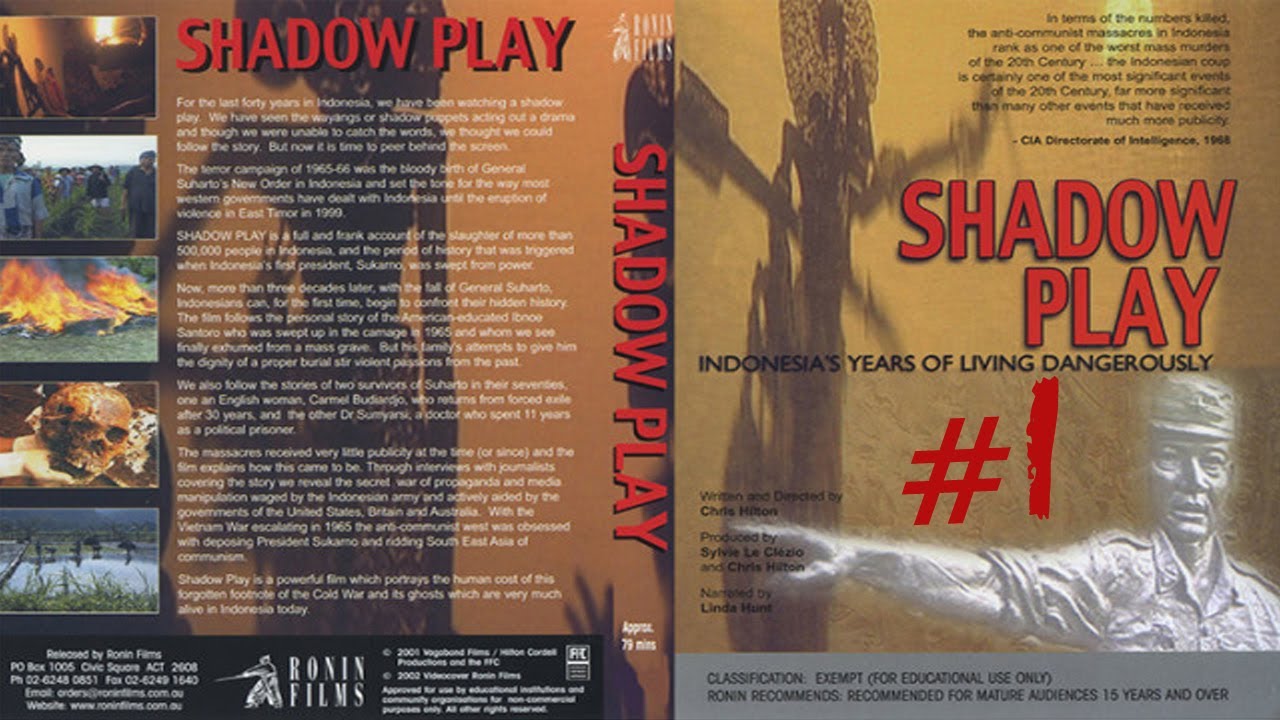Suharto: The Indonesian Genocide of the PKI (1965-1966)
Summary
TLDRThe video explores the dark chapter of Indonesia's 1965 cultural revolution, where the CIA allegedly supported General Suharto's rise to power, resulting in the mass killing of up to 2 million Indonesians. Following a failed coup, Suharto targeted the Indonesian Communist Party (PKI), leading to widespread executions and a brutal anti-communist purge. The narrative reveals U.S. involvement through intelligence sharing and military support, highlighting the hypocrisy of American foreign policy in the name of freedom while facilitating a genocide. It questions the moral implications of such interventions and emphasizes the need for awareness of these historical events.
Takeaways
- 😀 The Indonesian Cultural Revolution in 1965 was heavily influenced by U.S. involvement, particularly through the CIA's support for General Suharto.
- 😀 The coup known as the September 30th Movement was initiated by military conspirators who claimed a leftist coup was imminent, leading to the assassination of six generals.
- 😀 Suharto quickly acted to suppress the coup, positioning himself as the protector of Indonesia and consolidating power with U.S. backing.
- 😀 The genocide that followed saw the deaths of an estimated 500,000 to 2 million Indonesians, primarily targeting members and sympathizers of the Indonesian Communist Party (PKI).
- 😀 The U.S. government, including Ambassador Marshall Greene, had prior knowledge of the coup and actively supported the military’s actions against communists.
- 😀 The CIA provided the Indonesian military with lists of suspected communists, contributing to widespread executions and violence.
- 😀 Anti-communist sentiment was fueled by cultural and political factors, including Indonesia's complex social hierarchy and longstanding tensions between regions.
- 😀 Despite the scale of the atrocities, the U.S. media largely ignored the genocide, framing it as a necessary measure to prevent communism’s spread.
- 😀 The narrative promoted by the U.S. at the time minimized military culpability in the mass killings, focusing instead on the PKI’s alleged role in the coup.
- 😀 The Indonesian Cultural Revolution serves as a critical example of how Cold War politics led to significant human rights violations under the guise of promoting democracy and stability.
Q & A
What event triggered the Indonesian Cultural Revolution?
-The Indonesian Cultural Revolution was triggered by the September 30th Movement in 1965, where six Indonesian generals were killed by military conspirators who claimed a right-wing coup was imminent.
Who was Suharto, and what role did he play during the Cultural Revolution?
-Suharto was a lower-ranking general who quickly acted to suppress the coup, declaring he was restoring order on behalf of President Sukarno. He later became the president and led a genocide against suspected communists.
How did Sukarno's government function before the coup?
-Sukarno's government operated with a decentralized system where various islands had significant autonomy, but all were ultimately governed by a central democratic authority, which Sukarno led.
What was the U.S. government's concern regarding the PKI?
-The U.S. government was worried about the growing power of the PKI, especially as it was the third largest communist bloc in the world, fearing it could take over Indonesia after Sukarno's potential demise.
What was the outcome of Suharto's actions following the coup?
-Following the coup, Suharto launched a mass genocide against the PKI and their associates, resulting in the deaths of an estimated 500,000 to 2 million Indonesians.
What evidence suggests that the CIA had prior knowledge of the coup?
-Evidence includes a 1964 NATO intelligence report that indicated Western agencies would orchestrate a failed communist coup, allowing the military to suppress communism and strengthen their power.
What role did the U.S. play in the mass killings that followed the coup?
-The U.S. provided support to Suharto's military, including lists of known communists, communications equipment, and intelligence that facilitated the mass executions of suspected PKI members.
How did the media and international community respond to the genocide?
-The media largely ignored the genocide, and there was minimal international condemnation. Many narratives focused on the coup and ignored the scale of the killings and atrocities committed.
What are the implications of U.S. involvement in Indonesia for understanding its foreign policy?
-The U.S. involvement in Indonesia exemplifies a willingness to prioritize geopolitical interests over human rights, showcasing how foreign policy decisions can lead to large-scale violence and suffering.
What lessons can be drawn from the Indonesian Cultural Revolution regarding U.S. foreign interventions?
-The Indonesian Cultural Revolution highlights the dangers of covert support for regime changes and the potential for catastrophic consequences, reminding us to critically evaluate the motives behind foreign interventions.
Outlines

此内容仅限付费用户访问。 请升级后访问。
立即升级Mindmap

此内容仅限付费用户访问。 请升级后访问。
立即升级Keywords

此内容仅限付费用户访问。 请升级后访问。
立即升级Highlights

此内容仅限付费用户访问。 请升级后访问。
立即升级Transcripts

此内容仅限付费用户访问。 请升级后访问。
立即升级浏览更多相关视频

The Disturbing "Anti-Communist" Killings Of Indonesia

Shadow Play - Menguak Sisi Lain Tragedi Gestapu 1965 (G30S/PKI) Part 1 HD

Yang Enak di Zaman Soeharto: Kroni dan Keluarganya - Old Money 1 | Narasi Explains

Sensus Daerah Pembunuhan Massal '65 Mana Paling Terdampak, Mana Jadi Tempat Sembunyi? | Buka Data

Seberapa Parah Pembantaian 1965-1966 Sebenarnya?

TURUNKAN SUKARNO! | Menggugat Sejarah Aksi TRITURA 1966
5.0 / 5 (0 votes)
